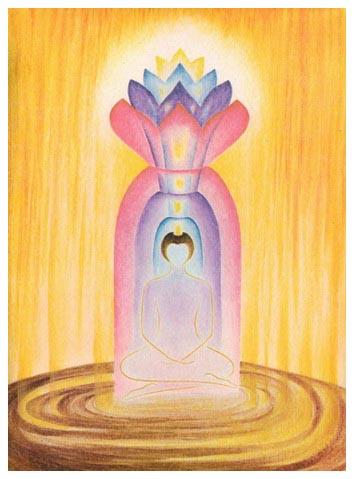The ultimate Truth can never be captured in any form of human thought or speech. Books can provide us with broad framework to undertake the journey to the Home of Truth and therefore are a great help but they cannot substitute for the personal individual discovery. Whether something written in a book is true or not, at least spiritual books, cannot be known by analysis. It can appeal to one’s intellect but more often it is through an inner intuition that one feels a certain writing as true and another as not true or a partial truth. A lot also depends upon the nature of our seeking. But rationally speaking, in the last analysis, any statement of Truth must be seen against its capacity and possibility of touching upon all aspects of life and integrating them. Truth is a totality and not an exclusivist formula. A truth that excludes the world in its search for God cannot be the last and final thing. it can be a partial truth but certainly not the highest. The highest Truth by its very nature must be one that makes the world and God grow true and one.
 Nothing is indispensable except aspiration, faith, sincerity and surrender. If one has these things, one will arrive even if one has not read a single book. However, it is not easy for man to develop these things in some measure. Books that are the result and expression of a spiritual consciousness as indeed Sri Aurobindo and the Mother’s books thereby serve to awaken us, illumine our intelligence, inspire us to walk the Path, lay down the broad guidelines of the sadhana, provide us with the needed guidance and even open us to the higher Consciousness through the words which often serve as capsules of Light. So, while it is perfectly possible to do the yoga without reading a single book, yet reading them helps and since one has decided to follow the path then why not open to any kind of help one may receive on the way when it comes directly from the Master. After all, when we read the books of Sri Aurobindo and the Mother, we come in contact with Their consciousness which is what the beginning of yoga is about. Once we open to them and give ourselves sincerely then the rest follows naturally.
Nothing is indispensable except aspiration, faith, sincerity and surrender. If one has these things, one will arrive even if one has not read a single book. However, it is not easy for man to develop these things in some measure. Books that are the result and expression of a spiritual consciousness as indeed Sri Aurobindo and the Mother’s books thereby serve to awaken us, illumine our intelligence, inspire us to walk the Path, lay down the broad guidelines of the sadhana, provide us with the needed guidance and even open us to the higher Consciousness through the words which often serve as capsules of Light. So, while it is perfectly possible to do the yoga without reading a single book, yet reading them helps and since one has decided to follow the path then why not open to any kind of help one may receive on the way when it comes directly from the Master. After all, when we read the books of Sri Aurobindo and the Mother, we come in contact with Their consciousness which is what the beginning of yoga is about. Once we open to them and give ourselves sincerely then the rest follows naturally.
The gap between reading and doing is covered by sincerity. What is needed for that is to make yoga not one of the things to be pursued among other things but the thing to be pursued. it is this one-pointedness that brings results quickly, although yoga is not done with an eye on results but for the joy of a growing union with the divine who is the very source and origin of our existence. In other words, the more we forget ourselves and instead of thinking about ourselves including our progress, we think about the Divine, remember the Divine, offer our life and work to the Divine, the faster we progress automatically as it were. for the rest we have to lean upon and rely on the Grace for all that has to develop through yoga. to think about ourselves defeats the very purpose of yoga which means to grow conscious of the Divine, to grow one with the Divine and for this it helps much more to focus our thoughts on the Divine rather than on ourselves.
Starting the practice, it is quite natural to think right away of change in our outer nature, the external man as they say. In reality, this is the last thing to change and, in some instances, may not even happen in one life. The outer nature is tightly in the grip of ignorance and habits that do not concede easily. However, it is the inner nature which includes attitudes, motives, goals, a general orientation that begins to change first. Then the change spreads to include our thoughts, feelings, will and impulses. One can even feel the body becoming more receptive to spiritual forces but this comes later.



About Savitri | B1C3-10 The New Sense (pp.29-31)